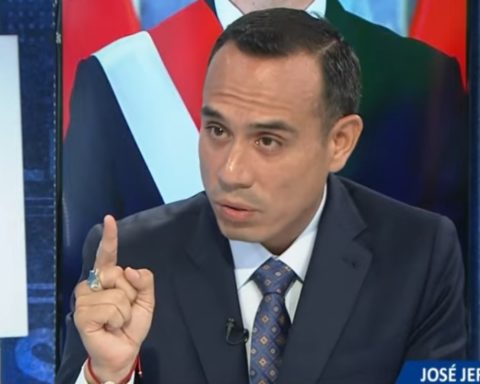As an unsustainable alternative that could aggravate the cash problems that the country is experiencing, Senator Ariel Ávila’s bill has recently been described, which seeks to overturn the General Participation System in Colombia to guarantee greater autonomy for the regions. and lower the centralization of resources and execution of spending that currently exists in the central government.
Specifically, we are talking about Legislative Act 018 of 2024 Senate-437 Chamber, which seeks to fulfill the promise of the 1991 Constitution to gradually increase income transfers from the Nation to territorial entities, going from the current 22% to 46% in a term of 10 years; taking into account that it is something that has already been agreed upon and would help overcome poverty gaps in the most remote sectors of the country.
More information: The request they made to the Senate to correct the course of the labor reform
In the words of Senator Ávila, his project also aims to put an end to a reality in which “the municipalities complain that the State delegates functions to them without money and the Nation complains that they cannot transfer more, because they have many functions that they would correspond to municipalities. So if there is going to be an increase in transfers in a period of 10 years, because obviously there has to be a competition law.”
Although the initial goal is for the reform to be carried out in the next decade, its speaker is aware that this could result in a heavy fiscal burden for the Nation, which does not rule out that perhaps, during the upcoming debates, can extend the period of the planned transition a little more. However, it makes it clear that it is something that must be done if we seek to move towards decentralization.
Housing construction and civil works.
Courtesy – BBVA Research
Fiscally unsustainable
One of the first teams to launch alerts against this project was the Anif Center for Economic Studies, which in a recent study said that it is a fiscally unsustainable path and that it is of no use to anyone, since on the one hand the central government loses a large amount of resources and on the other, the regions would not be ready to attend to the responsibilities that must come to them.
“The 1991 Constitution made an important commitment to deepen decentralization. In articles 356 and 357, a significant increase in transfers of the Nation’s current income to the departments and municipalities was established. This increase was programmed gradually and it was projected that by 2002 the municipalities would receive 22% of the income which, added to a greater participation of the Fiscal Located at that time of up to 24%, would ensure transfers for the territorial entities. of up to 46% of the current income of the Nation”, they started counting.
In this sense, Anif said that this process was truncated due to the lack of an appropriate reorganization of powers between the Nation, the departments and the municipalities and because the pressures of social spending derived from the new State model of the 1991 Constitution , combined with the arrival of the economic crises at the end of the century, quickly exhausted the fiscal space of the National Government.
Also read: And my pension? This is how the future of retirement looks for the country’s young people
“Currently, a regime was established in which the resources of the territorial entities, in the created General Participation System – replacing the Fiscal Situated -, increase each year in proportion to the percentage variation of the current income of the Nation during the previous four years. Laws 715 of 2001 and 117 of 2007 were responsible for determining the powers in response to said modifications,” they added.
In this way, they propose that there are already clear rules, which, although they could be adjustedeverything must be done within a process that does not alter the fiscal stability of the country and, on the contrary, focuses on strengthening administrative powers for the regions. Likewise, they make it clear that it is worrying that the reform initiative is already entering its sixth debate without much talk about it on the public agenda.

Colombian pesos
iStock
“In the current scenario and based on the official projections of the Medium Term Fiscal Framework (MFMP), GSP transfers will increase to the extent that the Nation’s current income has been growing as a proportion of the size of the economy. However, with Legislative Act 018, the additional pressure would be significant, taking GSP transfers to levels never seen before, not even in the 1990s,” they noted.
Legislative resistance
Another of the fronts in which alerts were recently launched and some resistance was shown to the SGP reform project is in Congress, where Senator Angélica Lozano sent letters to the Autonomous Committee of the Fiscal Rule and to Ariel Ávila himself, in the which calls for more detailed monitoring of the effects that will on the country’s economy, while warning that there are elements that are not taken into account.
For reading: These are the eight new articles that were approved to enter the labor reform
“It must be taken into account that the distribution of powers and resources between the national Government and the territorial entities is not only related to the resources of the SGP. The PAL incorporates issues that involve broader aspects that should be articulated with a new Organic Law of Territorial Planning (LOOT), the departmental and municipal regime codes and current regulations,” he commented in the letter.
Likewise, Lozano maintains that there are aspects of the proposal that are not are clear and are not coherent between the wording of the norm and its justification, since it does not really incorporate geographical criteria, but is based on the political-administrative division and persists in the use of the budget categories of Law 617 of 2000, which is not a technical approach that recognizes the heterogeneity of Territorial Entities.

Regions
The Time
“The proposed legislative act includes multiple criteria for the targeting, prioritization and distribution of resources (number of inhabitants, PDET municipalities, prioritization of general purpose allocation, sectors and categories, among others) generating differences between the proposed criteria of the same paragraphs. In this regard, uniformity and consistency of the provisions is necessary, so that the criteria are clear and do not complicate the current system,” it says in another section.
Finally, it should be noted that entities such as the National Planning Department have highlighted that the initiative under discussion does not have a fiscal guarantee, so the impact it would really have on the local economy is unknown. while they highlight that the Casa de Nariño is already working on this front.


















